
Giving CBD to your Lab for the first time can be confusing and intimidating. Over the last 5 years, CBD has exploded onto the scene, with many low-quality brands popping up to make a quick buck. How can you determine whether a CBD product is safe and effective for your Lab? We’ve created this guide with 5 vital tips for buying CBD for your Lab. Tip #5, in particular, might really surprise you!
1. Does the CBD Oil You’re Giving Your Lab Have a Current COA (certificate of analysis)
Ensuring that the CBD product you use for your Lab is pure is absolutely essential due to how CBD is manufactured. CBD is derived from hemp, which tends to absorb toxins from the earth. We have personally tested brands of CBD oil that have contained lead at 10x higher than safe levels.
While most CBD companies will have their product tested once, look for a brand that displays a current and updated COA on their website’s product page. It’s also absolutely vital that a CBD brand tests each and every batch of their CBD oil, as large variances can occur in the quality and purity.
The following is an example of a COA for the Cannanine CBD brand.
2. Has the Pet CBD Brand Been In Business for At Least 3 Years?
CBD for dogs has become a very profitable business, and many fly by night companies have popped up over the past few years. For this reason, we’d recommend looking for a company with a track record of at least 3 years in business. If a company can survive 3 years in business, its products are likely good enough quality to meet the standards of customers and regulators.
Learn more about the CBD endorsed by iHeartDogs, which was founded in 2018.
3. Am I Giving My Lab The Right Dosage of CBD?
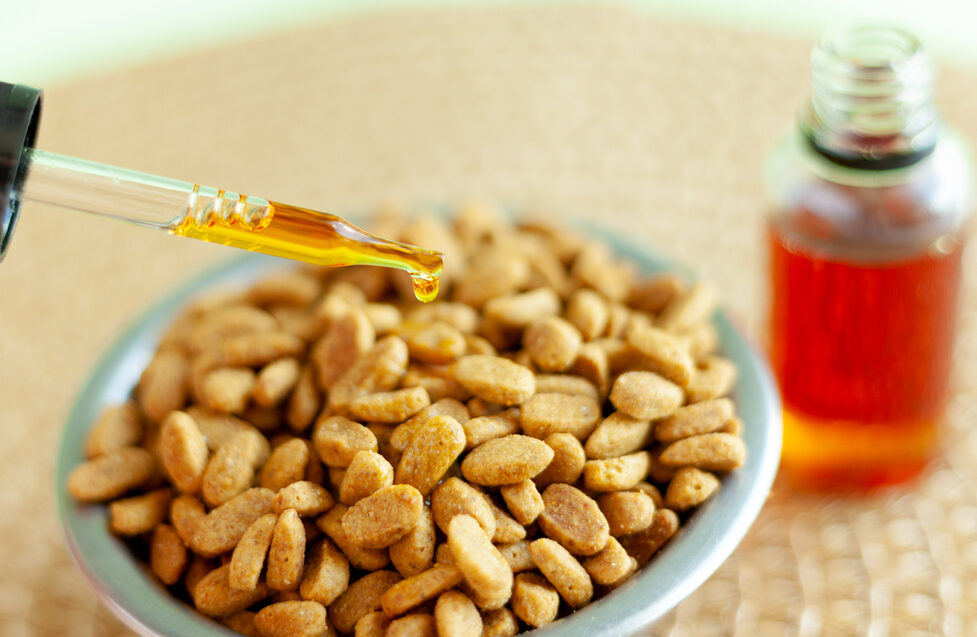
Many first-time Lab owners make a mistake on dosing CBD. Fortunately, research shows there does not seem to be much of a risk of overdosing on CBD with dogs. However, it is advisable to start with a low dose and slowly increase, monitoring how your Lab responds. In some cases, Lab owners don’t realize that they can slowly increase the dosing if they fail to see results.
Typical dosing is recommended in the range of 0.2 mg to 0.5 mg per pound of body weight. Again, it doesn’t hurt to start low and slow. Oftentimes, if a dog does react negatively to CBD, it is often from the oil contained in the product. Usually, the reaction will just be mild vomiting or diarrhea.
4. Understand The Difference Between the 4 Kinds of Products: Broad Spectrum CBD, Full Spectrum CBD, CBD Isolate, and Hemp Seed Oil
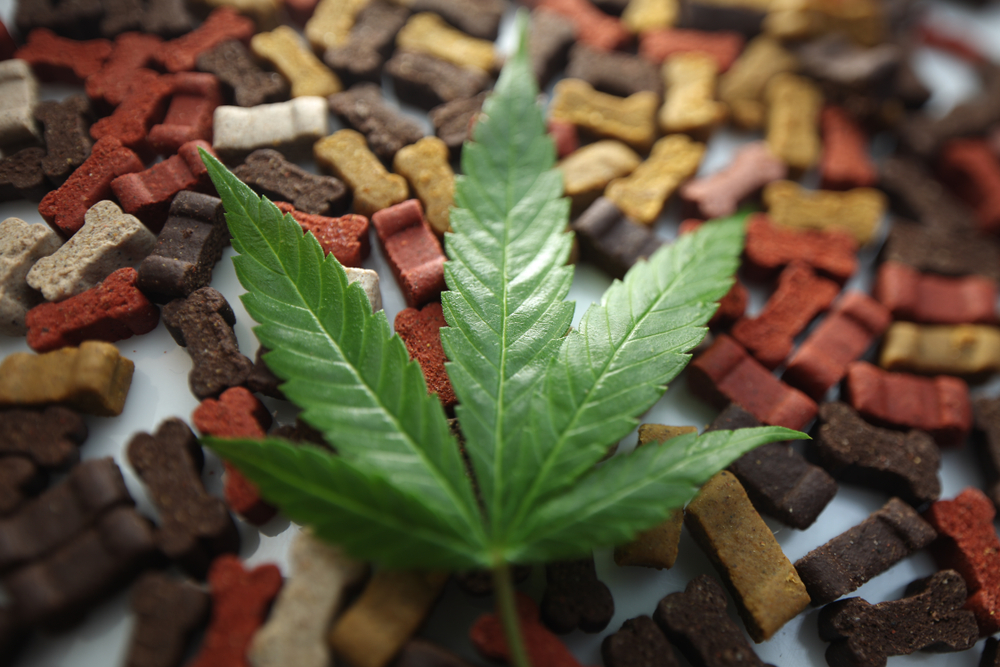
CBD for dogs comes with a confusing array of terms. Let’s break down the 4 kinds of products:
- Hemp seed oil – Hemp seed oil is derived from the seeds of the hemp plant, not the actual plant itself. Sometimes referred to as just “hemp oil”, this ingredient offers many benefits from the Omega-3s contained in it, but it does not contain CBD. Beware of products labeled only as ‘hemp oil’.
- CBD isolate – An isolate product starts with a full spectrum CBD, and chemically removes the other cannabinoids from the oil. While you still get some of the benefits of the CBD, you lose the benefit of a wider spectrum of the hemp plant. For this reason, we’d recommend avoiding CBD isolates for dogs.
- Full spectrum CBD – A full spectrum product contains all of the cannabinoids of the plant, including a small amount of THC. THC can be toxic to dogs, even in small doses. For that reason, we prefer the next option, especially for smaller pups.
- Broad spectrum CBD – A broad spectrum CBD product contains all of the cannabinoids with the exception of THC, which is removed. The end result is a product that contains nearly the full spectrum, minus the riskier THC. For most dogs, we believe broad spectrum is the best option.
5. Be Careful Purchasing CBD Products on Amazon or Chewy
Unfortunately, many unscrupulous brands list their “hemp oil” products on Amazon and Chewy stores in an effort to trick customers into believing they contain CBD, while it only contains hemp seed oil. While hemp seed oil offers many benefits, it does not offer the calming and pain relief properties of true CBD.
The Cannanine chews available on Amazon can be trusted by viewing the COAs here.
What Brand of CBD Has the iHeartDogs Seal of Approval?
iHeartDogs helped formulate the Cannanine brand of CBD for dogs. (also available on Amazon) In addition to being organically farmed, every batch of Cannanine CBD is triple-tested to ensure purity, safety, and efficacy.
Frequently Asked Questions About CBD Oil, Chews & Treats for Labs
CBD vs. Fluoxetine/Prozac for Labs: Which is More Effective?
Prozac/Fluoxetine an SSRI antidepressant used to treat a variety of behavioral disorders in Labs. Many veterinarians prescribe Prozac for separation anxiety. In recent years, many pet owners have begun turning to CBD for more natural anxiety relief for their dogs.
Only you and your veterinarian can make the best choice for your Lab’s situation. In my personal experience with my dog’s separation anxiety, while my pup got temporary relief from Prozac, it also significantly changed her personality and energy. Eventually with a process of training and using CBD that I detail here, we were able to finally beat separation anxiety for good.
CBD vs. NSAID Pain Medications like Rimadyl, carprofen, Novox, deracoxib, Deramaxx, firocoxib, Previcox, meloxicam, or Metacam: Which Is More Effective for Labs?
NSAID medications can be powerful tools in fighting pain. They do, however, often come with long-term side effects that can affect digestion, the kidneys, or the liver. Only you and your veterinarian can make the best choice for your Lab, but many owners have found that CBD offers more natural relief without any known side effects. Many Lab owners give CBD in addition to prescription medications, but be sure to discuss your plan with your veterinarian.
Can CBD Help My Lab’s Joint Pain, Hips, Back, Arthritis or Mobility?
The last few years have produced exciting research on the effectiveness of CBD on an older dog’s mobility. Several clinical trials using CBD on dogs have shown improvement in mobility scores for dogs given CBD oil. Remember, arthritis is a degenerative condition that will continue to worsen, however, it appears CBD can help slow the progression of pain. According to a poll administered to 400 dog owners, 59% reported that CBD was ‘very effective’ and 19% reported CBD was ‘somewhat effective’ in alleviating their dog’s joint pain.

Can CBD Help My Lab’s Anxiety?
As detailed here, clinical trials using CBD for humans (who also have an endocannabinoid system like dogs) have shown its ability to calm anxiety. According to a poll administered by iHeartDogs to 400 dog owners using CBD, 41% of owners reported that CBD was ‘very effective’, while 25% reported it was ‘somewhat effective’ in helping their dog’s anxiety.

Can CBD Help My Lab’s Allergies & Itchiness?
A 2020 study concluded that dogs using CBD were more likely to see a significant decrease in atopic dermatitis symptoms. In fact, the dogs in the study had a 51% decrease in CADESI-4 scores, meaning fewer allergy/itchiness symptoms were present after the study.
An iHeartDogs poll showed that 68% of respondents said that CBD was ‘very effective’ or ‘somewhat effective’ in alleviating their dog’s allergy symptoms.

Can CBD Help My Lab’s Seizures?
One of the earliest uses for CBD in both humans and dogs was for minimizing epileptic seizures when medication failed to work. One study published in 2018 showed that an astonishing 89% of the dogs studied showed a drop in regular seizures after being given CBD. The study was a double-blind, placebo-controlled test.
The same iHeartDogs poll showed that 70% of respondents claimed that CBD was ‘very effective’ or ‘somewhat effective’ at reducing the number of seizures experienced by their dog.

Which CBD is Best for My Lab: Oil Tinctures, Soft Chews, or Treats?
Whether you give your Lab a CBD oil tincture, a CBD soft/gummy chew, or a treat is a personal choice.
There are some benefits to CBD being absorbed in the mouth sublingually, and your best bet for this rapid absorption is by using a CBD oil tincture. However, if your Lab won’t take oil directly to their mouth or in their food, a CBD soft chew or treat is an equally viable option.
Learn more about the different types of CBD available for your Lab here.
The Cannanine chews available on Amazon can be trusted by viewing the COAs here.
These statements have not been evaluated by the Food and Drug Administration. This product is not intended to diagnose, treat, cure, or prevent any disease. The information on this website is not intended to replace a one-on-one relationship with a qualified healthcare professional.
Top 9 Pet Insurance Plans for Labs (2023)
- Best Joint Supplement for Dogs
- Best CBD Gummies for Dogs
- Goat's Milk for Dogs
- Skin & Coat Supplements for Dogs
- Weight Gain Supplements for Dogs
- Muscle Building Supplements for Dogs
- Heart Supplements for Dogs
- Multivitamins for Dogs
- Pill Pockets for Dogs
- Digestive Enzymes for Dogs
- Turmeric for Dogs
- Liver Supplements for Dogs
- Tear Stain Supplement for Dogs
- Breath Fresheners for Dogs
- Kidney, Urinary, & Bladder Supplements for Dogs
- Stool Eating Deterrent for Dogs
- Eye Supplements for Dogs
- Melatonin for Dogs
- Apple Cider Vinegar for Dogs
- Green Lipped Mussels for Dogs
- L Theanine for Dogs
- Chondroitin Supplements for Dogs
- MSM for Dogs
- Valerian Root for Dogs
- Chamomile for Dogs
- Boswellia for Dogs
- L Tryptophan for Dogs
- Yucca for Dogs
- Licorice Root for Dogs
- Bromelain for Dogs
- Papain for Dogs
- Devil's Claw for Dogs
- Quercetin for Dogs
- Hemp gummy for dogs
- Best Hemp Dog Treats
- Best Hemp Oil for Dogs
- Best Calming Treats, Chews, & Supplements for Dogs
- Best Bone Broth for Dogs
- Best Fish Oil for Dogs
- Best Probiotics for Dogs
- Best Hip Dysplasia Supplements for Dogs
- Best Colostrum for Dogs
- Best Quercetin for Dogs
- Best Greens for Dogs Supplements
- Best Vitamin C Supplements for Dogs
- Best Probiotic for Dog with Allergies
- Best Taurine Supplements for Dogs
- Best Dog Food Toppers
- Best Anal Gland Supplement for Dogs
- Best Dog Probiotic Powder
- Best CoQ10 Supplement for Dogs
- Best Liquid Glucosamine for Dogs
- Best Wrinkle Creams, Balms, and Wipes for Dogs
- Best Puppy Calming Treats
- Best Colloidal Silver for Dogs
- Best Adaptogen Supplements for Dogs
- Best Cognitive Supplements for Dogs
- Best Bee Pollen for Dogs
- Best Vitamin A Supplements for Dogs
- Best Vitamin E Supplements for
- Best Liquid Glucosamine Supplements for Dogs
- Best SAM-e Supplements for Dogs
- Best Hyaluronic Acid Supplements for Dogs
- Best Apple Cider Vinegar Supplements for Dogs
- Best Diarrhea Medicine for Dogs
- Best Milk Thistle for Dogs
- Best Turkey Tail Mushroom Supplements for Dogs
- Best Astaxanthin Supplements for Dogs
- Best Lutein Supplements for Dogs
- Best Electrolyte Supplements for Dogs
- Best Coconut Oil for Dogs
- Best Prenatal Vitamins for Dogs
- Best Puppy Milk Replacements
- Best Iron Supplements for Dogs
- Best Dewormer Products for Dogs
- Best Mange Medications for Dogs
- Best Cough Relief Products for Dogs
- Best Sinus Relief Products for Dogs
- Best Collapsed Trachea Supplements for Dogs
- Best Fireworks Anxiety Relief Products for Dogs
- Best Thunderstorm Anxiety Relief Products for Dogs
- Best Travel Anxiety Relief Product for Dogs
- Best Supplements for a Dog with a Torn ACL
- Best Supplements for a Dog with Patellar Luxation
- Best Supplements for a Dog with Intervertebral Disc Disease
- Best Zinc Supplements for Dogs
- Best Biotin Supplements for Dogs
- Best Tart Cherry Supplements for Dogs
- Best Resveratrol Supplements for Dogs
- Best Ginkgo Biloba Supplements for Dogs
- Best Ashwagandha Supplements for Dogs
- Best Supplements for Dogs with Cushing's Disease
- Best Adrenal Supplements for Dogs
- Best NAD+ Supplements for Dogs
- Best NMN Supplements for Dogs
- Best Supplements for Dogs with Dementia
- Best Supplements for Dogs with CCD(Canine Cognitive Dysfunction)
- Best Fiber Supplements for Dogs
- Best Spirulina for Dogs
- Best Hairball Remedies for Dogs
- Best Eye Drops for Dogs with Allergies
- Best Magnesium Supplements for Dogs
- Best Brushes for Double-Coated Dogs
- Best Dandelion Root Supplements for Dogs
- Best Probiotic for Dogs with Yeast Infections
- Best Flaxseed Oil for Dogs
- Best Chamomile Supplements for Dogs
- Best Lavender Supplements. Treats & Sprays for Dogs
- Best Collagen Supplements for Dogs
- Best Kelp Supplements for Dogs
- Best Activated Charcoal for Dogs
- Best Slippery Elm Supplements for Dogs
- Best Supplements for Dogs with Seizures & Epilepsy
- Best Antioxidant Supplements for Dogs
- Best Ubiquinol Supplements for Dogs
- Best Hormone & Glandular Supplements for Dogs
- Best Thyroid Supplements for Dogs
- Best Iodine Supplements for Dogs
- Best Dog Shedding Supplements for Dogs
- Best Detox Supplements for Dogs
- Best Postbiotics for Dogs
- Best Aspirin Products for Dogs
- Best Dog Anti-Nausea Products
- Best Dog Mouthwashes
- Best Camelina Oils for Dogs
- Best Hemp Seed Oils for Dogs
- Best Natural Anti-Inflammatories for Dogs
- Best Cancer Supplements for Dogs
- Best Sardine & Anchovy Oils for Dogs
- Best Fatty Acid Supplements for Dogs
- Best Chia Seed Supplements & Treats for Dogs
- Best Olive Oils for Dogs
- Best Amino Acid Supplements for Dogs
- Best Moringa Supplements for Dogs
- Best Echinacea Supplements for Dogs
- Best Cranberry Supplements for Dogs
- Best D-Mannose Supplements for Dogs
- Best Nettle Leaf Supplements for Dogs
- Best Marshmallow Root Supplements for Dogs
- Best Astragalus Supplements for Dogs
- Best Pumpkin Seed Supplement for Dogs
- Best Supplements for a Dog Wetting The Bed
- Best Blueberry Supplement for Dogs
- Best Bromelain Supplements for Dogs
- Best Yucca Supplements for Dogs
- Best Ginger Supplements for Dogs
- Best Rosehip Supplements for Dogs
- Best Allergy Medicines for Dogs
- Best Reishi Mushroom Supplement for Dogs
- Best Maitake Mushroom Supplement for Dogs
- Best Chaga Mushroom Supplement for Dogs
- Best Shiitake Mushroom Supplement for Dogs
- Best Cordyceps Mushroom Supplement for Dogs
- Best Lion's Maine Supplement for Dogs
- Have question? - Ask in our Dog Health Forum
- CBD for Dachshunds: What You Need to Know
- Best Supplements for a Senior Dachshund
- Best Flea & Tick Products for Dachshunds
- Best Dog Foods for Dachshunds
- Best Online Dog Training Courses for Dachshund
- Best Hip & Joint Supplement for a Dachshund
- What Supplements Should I Give a Dachshund Puppy?
- The 9 Best Dachshund Puppy Foods
- Best Dog Beds for Dachshunds
- Improve Your Dachshund's Skin & Coat with This One Hack
- Giving This to Your Dachshund Daily Can Alleviate Itchy Allergies
- 6 Natural Ingredients to Fight Your Dachshund's Allergies
- 8 Ways to Stop Your Dachshund's Scratching
- 7 Ways to Calm Your Dachshund's Anxiety
- 6 Remedies for Your Dachshund's Diarrhea, Gas, or Vomiting
- 7 Best Dental Chews for a Dachshund
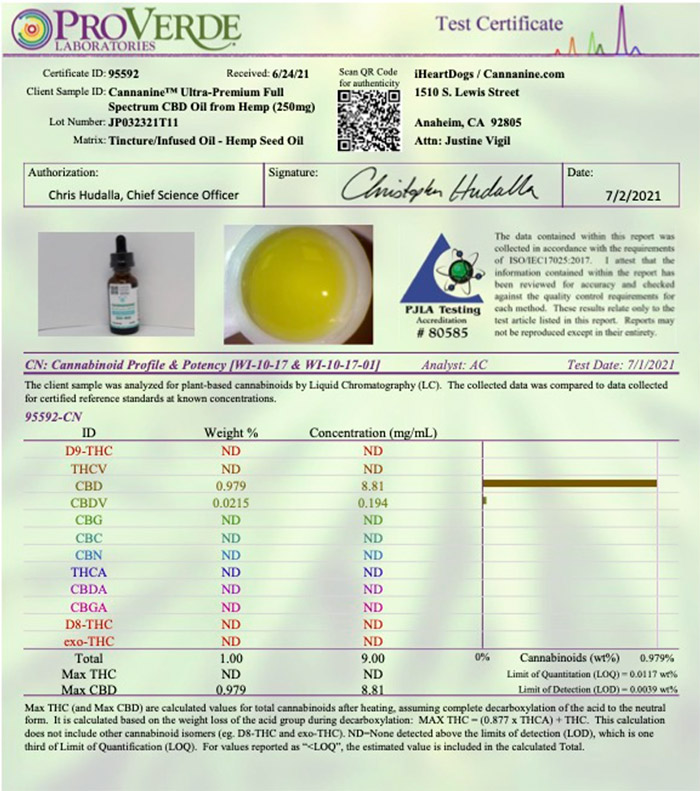
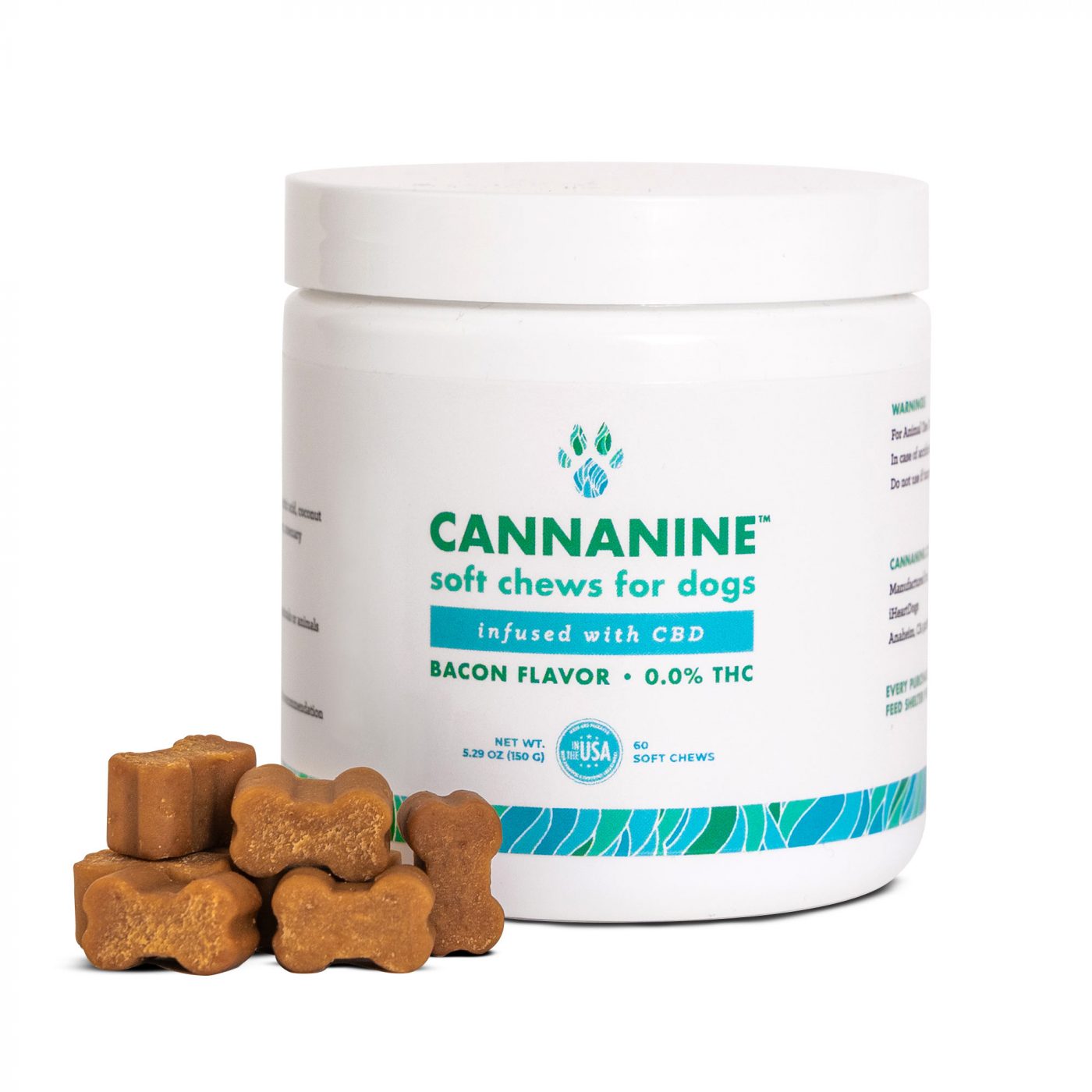
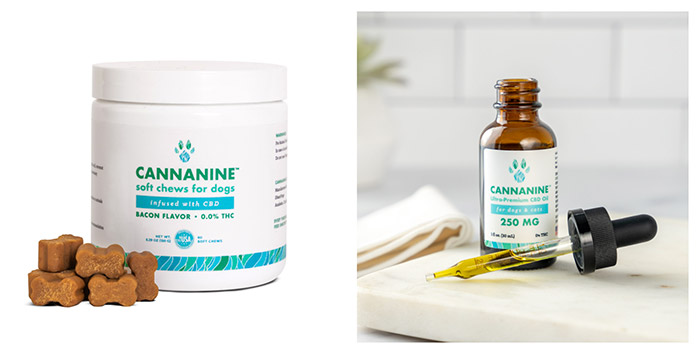
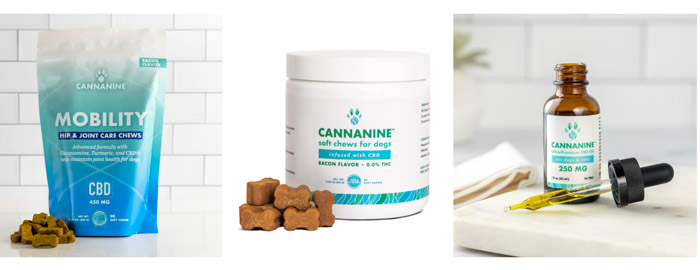
 Toledo, United States.
Toledo, United States.
